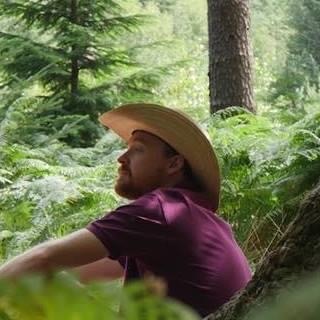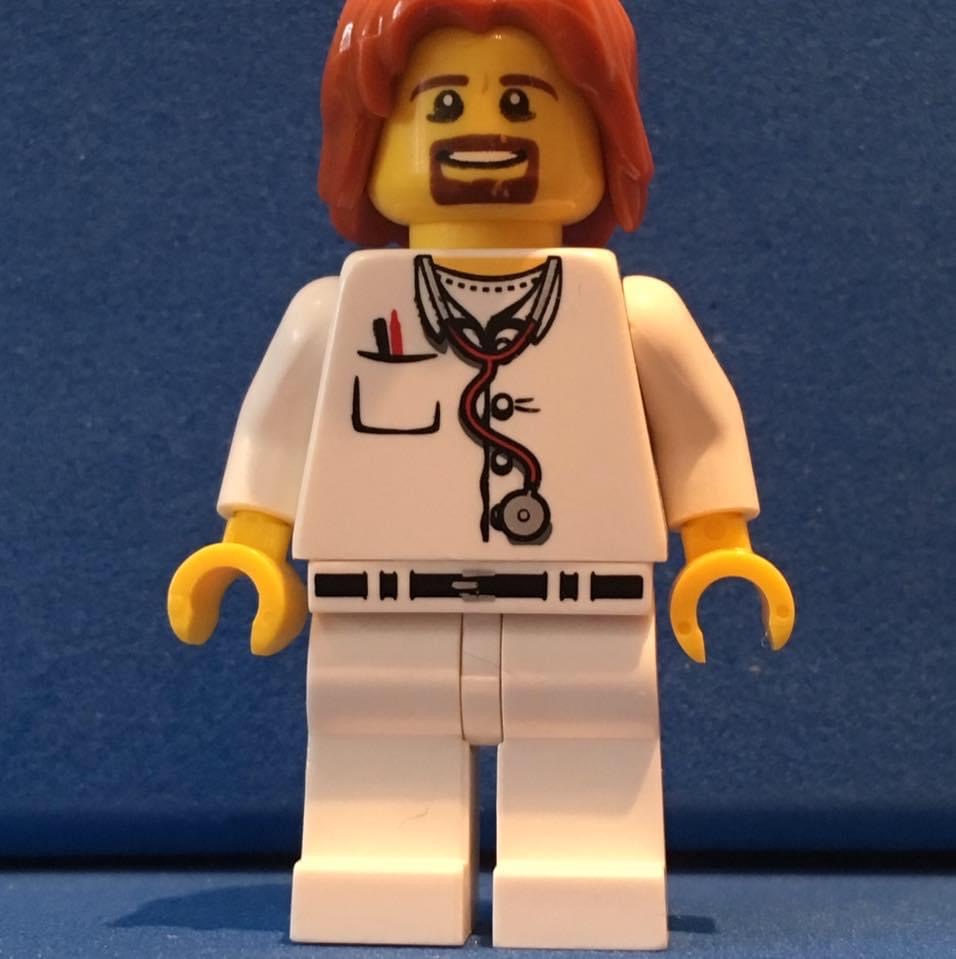Hello. I’m Dr Luke, a GP in Hertfordshire.
So, we are 35 days into “lockdown” (it started March 23rd), a time that has obviously seen significant change in our lifestyles.
Love it or hate it at least some change is likely to be long term as a result of “the virus”.
Personally….
For myself I am greatly enjoying the peace and quiet, the sound of birds instead of traffic. However, I do miss seeing friends and family.

Maybe the greater change is an emotional one.
Life in the time of Coronavirus has highlighted the insecurities we had hidden under our busy lives.
Many friends face financial difficulties due to loss of their jobs and all of us live under the fear of catching the dreaded lurgy (reference the 1950s goon show).
Having had what was probably a mild case of Coronavirus in the form of a dry cough for 2 weeks I can certainly relate to the national anxiety through the fear and doubts that I’ve experienced.
GP’s overwhelmed
General Practice was initially almost overwhelmed with people concerned that they had Coronavirus, in addition to our usual full workloads.
Then there was a national shift to using 111 to advise people, but then 111 was overwhelmed and the wait for a call back became dangerously long.
We needed to protect our staff and our patients from spreading the virus in our very practices.
Things had to change.
So, we embraced innovation.
Our clinical team now operates in an unrecognisable way.
We care for our patients with telephone calls and video consultations. We look at photographs and “e consultation” notes submitted by you through our website and give advice and medicines accordingly.
This is working amazingly well, and I’ve been very pleasantly surprised that we can still provide good medical care remotely.

Where necessary we still see patients face-to-face in the surgery, but we have strict protocols and use PPE to keep things safe for everyone.
We also worked together with other local practices to set up and man a “hot site” where patients who have symptoms likely to be Coronavirus are seen safely.
We will never go back to how things were.
It is not ‘Practice’ as usual by any means, but it works so well we will never go back to how things were.
The face of General Practice has changed forever. Its new look innovative General Practice as part of our dear National Health Service.
And it is an NHS that seems to be valued once more!
Sadly, expressions of anger and dissatisfaction at GPs and practice staff had become a common (and very upsetting) occurrence before the pandemic struck. Now we are greeted with respect and gratitude once more.
That makes our jobs very satisfying.
I’ve heard Covid 19 itself described a “a simple illness to treat”. From a GP perspective this is pretty true. Most patients will have a mild illness and their own immune system will cure them.
A very few will have life threatening illness.
Most of these people will develop significant difficulty in breathing, this often occurs after about 9-14 days of symptoms. All a GP needs to do is identify which group a patient falls into. The mild cases we are happy to give reassurance and advice. The life-threatening cases need to be directed promptly to hospital.
This can be done highly effectively and safely with telephone and video assessment.
High risk patients
We also need to help those who are high risk. Patients of advanced age or those with significant medical problems.
These people may need to be given antibiotics early in the illness to prevent them getting a secondary bacterial chest infection that can make the whole thing much more severe.
This group of people should also be following the governments shielding advice to protect themselves. By now all these people will have been advised either directly by a letter from the government or contacted directly by their GP.
Those with more severe illness
We also need to identify those who are having a more severe illness from Coronavirus but don’t obviously need to be sent straight to hospital.
This may include people who are not significantly better after 7 days and those with an extremely high temperature in combination with abnormal medical “observations” such as blood oxygen levels, breathing rate or heart rate.
This is where the “hot site” comes in useful, with a brief examination we can measure these factors and make an appropriate treatment plan, this often includes antibiotics to prevent a secondary bacterial infection.
Covid paranoia
There are also a couple of other types of consultations we are doing a lot of. We are speaking to a lot of people with something I have labelled as “Covid paranoia” or “Covidanoia”.
This is where any pretty normal bodily function or minor ailment worries the person so much, they think they have Coronavirus and they call their GP in an anxious state.
I think this represents the level of fear that we are all dealing with at the moment and GPs have become adept at reassuring the worried well.
Covid denial
In contrast to those with “Covidanoia” are those with “Covid denial”. This is where I speak to someone on the phone who obviously (to me as a doctor anyway) has a pretty serious case of Coronavirus but seems oblivious to that fact!
I spoke to a patient last week who had continued going to work with sore throat and cough and had eventually been sent home by her employer.
We can only do these jobs if people seek our advice and medical care.
Where have all the sick people gone?
There is another very important question that GPs have been asking for a few weeks and the media just now seems to be picking up on…..Where have all the sick people gone?
That’s what we are asking ourselves.
Part of a GPs job is to sift through all the common colds and aches and pains to find the people with a life-threatening medical condition.
However, I have not referred a single patient with a heart attack or a stroke to hospital for 4 weeks. And I have only made a few referrals to the rapid access hospital clinics for possible cancers.
That is very unusual!
Whilst some people may be finding ways to manage minor health complaints through self-care.
Undoubtedly some are staying at home and keeping quiet when they should be seeing a doctor!
So, the current maxim “Stay Home, Stay Safe, protect our NHS” needs some adjustment.
Stay Home, Stay Safe, protect our NHS, AND Call your GP if you need to!


Greetings! I’ve been reading your blog for some time now and finally got the bravery to go ahead and give you a shout out, ! Just wanted to mention keep up the good work!
LikeLike
Interesting read. I think that people are so paranoid about covid that they are not going to the doctors in fear of being refferd to a hospital. As some see it as almost guaranteed that they will get it
LikeLike
I think you’re right. But the funny thing is, I’ve known a few people that have had to go into hospital out of necessity (not Covid related), and they’ve been seen really quickly and given excellent care, largely because other departments, including A&E, are pretty empty!
LikeLike
Thanks for reading and taking the time to comment.
LikeLike
Thanks Dr Luke!
Will any doctor with knowledge of Lurgi please communicate with Dr. Hercules Grytpype-Thynne…..
LikeLike
Goon show reference I take it Tim?
LikeLike
A really interesting insight from Dr Luke. Thanks for sharing!
LikeLike
You’re welcome, and thank you! I’ll pass this onto Dr Luke
LikeLike